What Happens During a Septic–System Inspection?
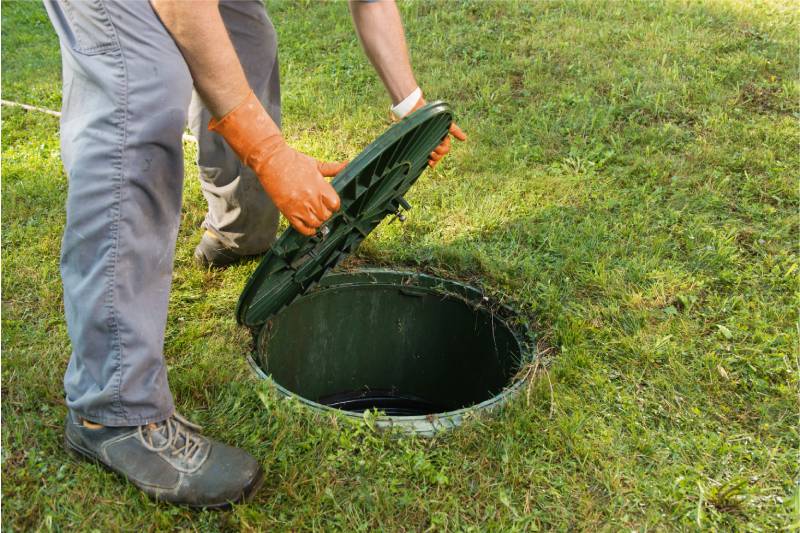
- Drew Sleezer
- 10 September, 2025
- MaintenanceResidential
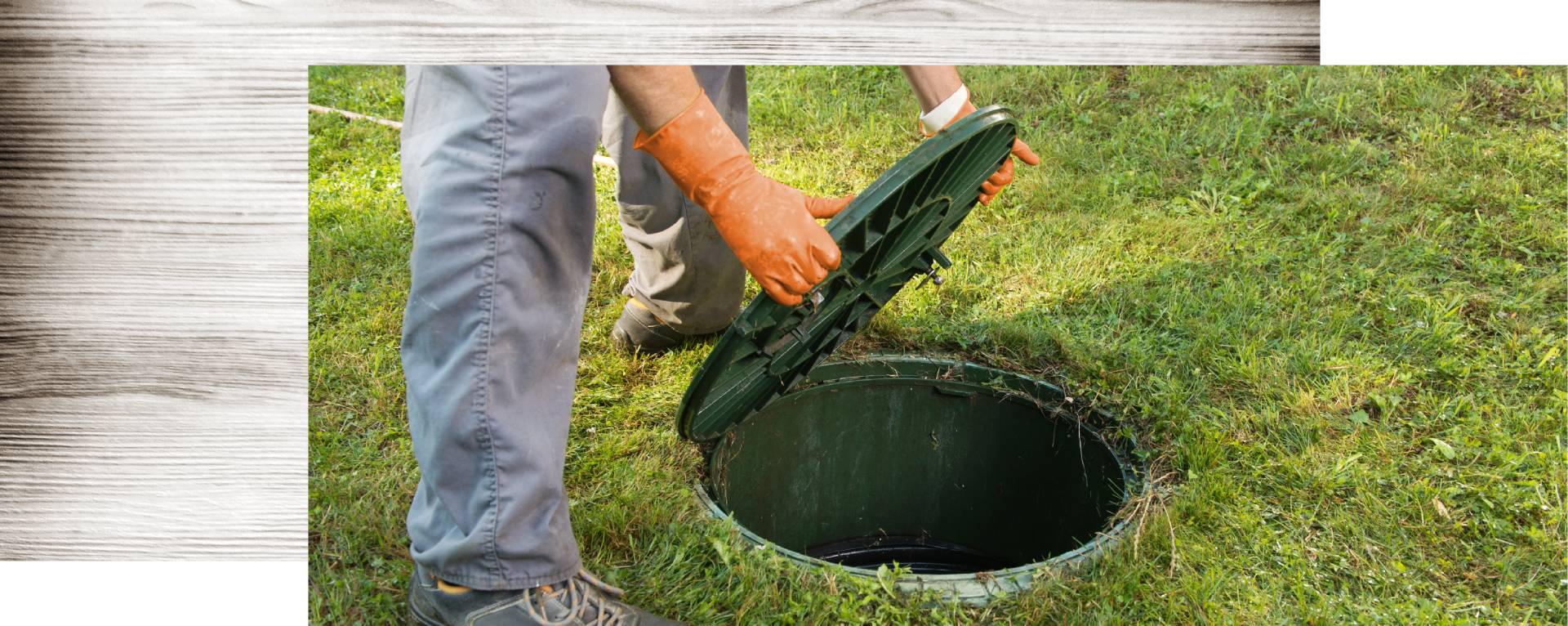
A Step-by-Step Look for Tulsa Homeowners and Buyers
If you own a home in the Tulsa area—or are in the process of buying one—understanding your septic system is essential. Septic issues can cause expensive repairs, damage property, and even lead to health hazards. The good news? A professional septic system inspection from Assured Home Inspectors (AHI) can help you avoid all of that.
AHI is a locally owned and operated Tulsa business with more than 12,000 inspections under our belt. Our team provides detailed, unbiased septic tank inspections for both conventional and aerobic systems throughout the greater Tulsa metro.
Let’s explore what a septic inspection includes, what signs to watch for, what it costs in Tulsa, and how to protect your system for the long haul.
Why Septic Inspections Matter in the Tulsa Area
In Tulsa County and surrounding areas like Bixby, Jenks, Sand Springs, and Broken Arrow, many homes depend on private septic systems rather than municipal sewer lines. In fact, around 50% of homes in Oklahoma use a septic system—more than double the national average of 20%. These systems are the homeowner’s responsibility, and without proper care, they can fail—leading to costly repairs and potential health hazards.
Septic inspections help you:
- Avoid costly repairs or system replacements
- Prevent environmental or health hazards
- Protect your home’s value
- Make informed decisions when buying or selling
If you’re purchasing a home with a septic system, some lenders require an inspection before approving a mortgage. Even if it’s not required, a septic inspection is a smart move that could save you thousands.
What’s Included in a Septic Inspection?
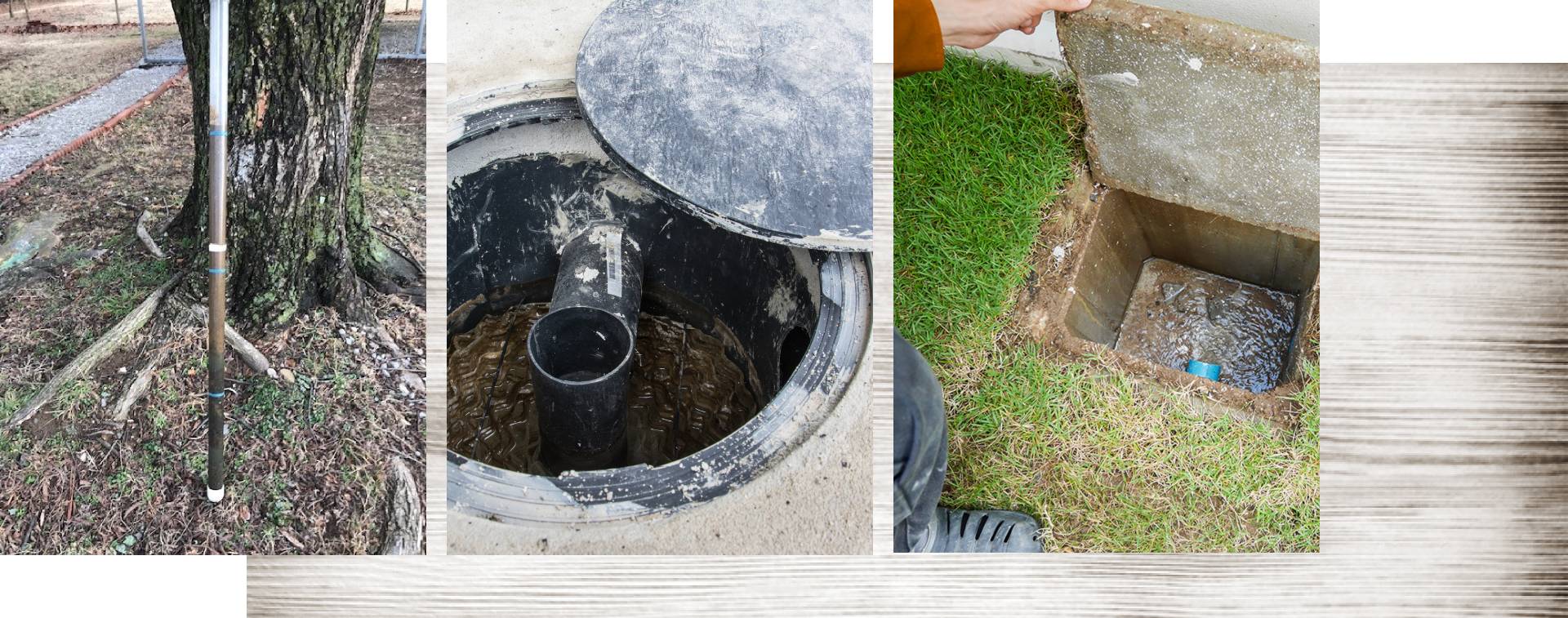
When you book a septic system inspection in Tulsa with AHI, we provide a comprehensive review of all accessible components, depending on what kind of system you have. We evaluate:
| Components Checked | Conventional Septic System | Aerobic Septic System |
| Tank Condition Checking for leaks, cracks, or signs of failure | ||
| Sludge Levels Determining if the tank needs pumping | ||
| Baffles Ensuring key parts are in place to keep solids from escaping | ||
| Flow Test Evaluating how wastewater moves through the system | ||
| Aeration Components Verifying compressor and treatment operation | ||
| Sprinkler Systems Checking for functionality and spray settings | ||
| Disinfectant Levels Ensuring sanitization is functioning properly | ||
| Drain Field or Lagoon area Looking for pooling water, odors, or overgrowth |
We use our experience to spot problems early—and give you peace of mind or a clear action plan if repairs are needed.
Common Septic Systems in Tulsa
In the Tulsa area, homeowners typically have one of two system types, conventional or aerobic.
Conventional Systems
- Wastewater enters a large underground tank
- Solids sink to the bottom, oils float to the top
- Liquid effluent drains into a leach field or lagoon
- Requires regular pumping to prevent buildup
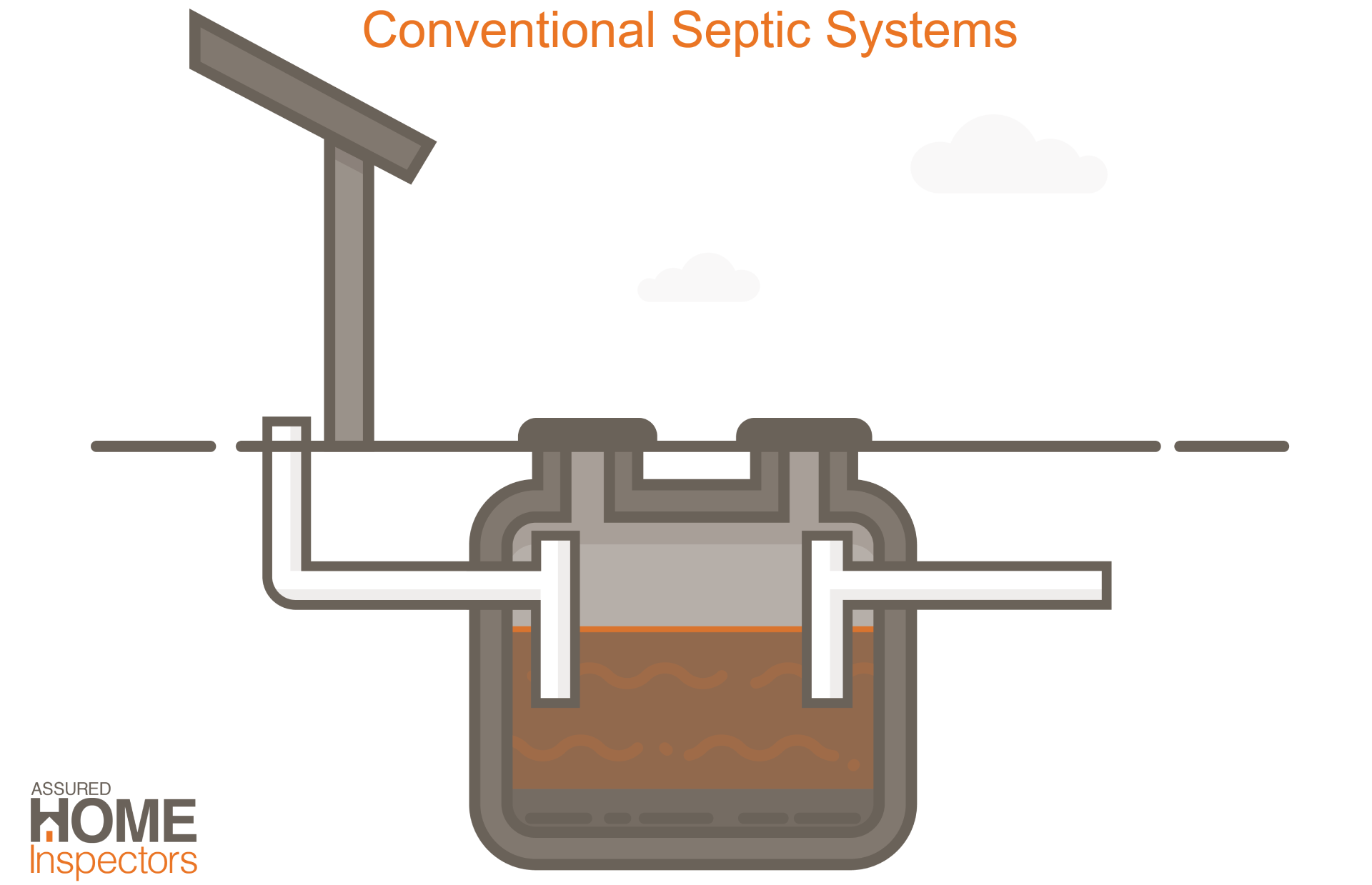
Aerobic Systems
- Wastewater enters the first tank, where solids settle at the bottom. The liquid then flows into a second tank that introduces air to help bacteria break down organic material.
- The water is then disinfected and distributed through sprinklers or a drip system across the yard.
- Aerobic systems require electricity, disinfectant tablets or chlorine, and routine maintenance—including pumping as needed.
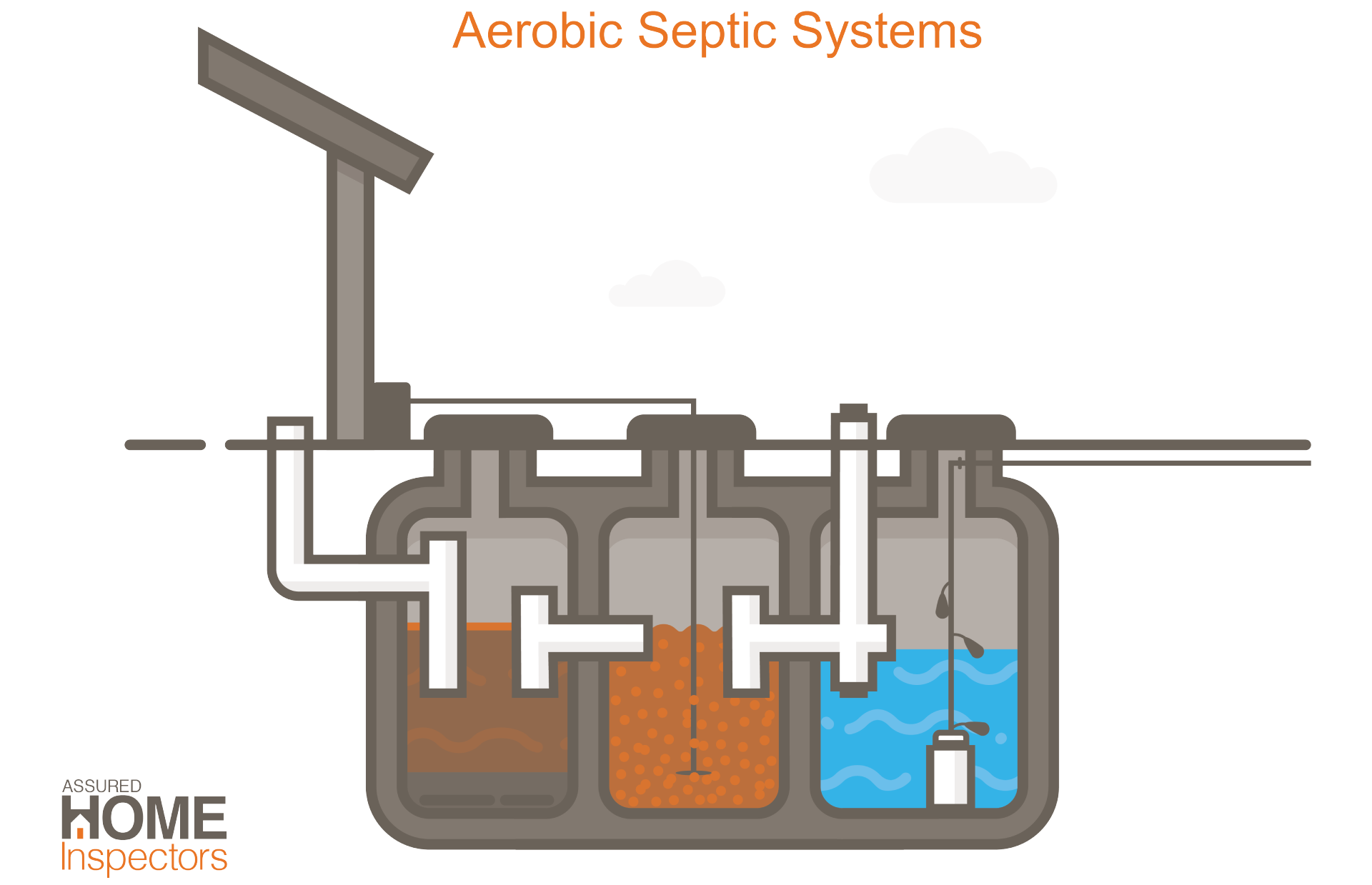
AHI is trained to inspect both system types, giving you detailed insights no matter what system is on your property.
When Should You Schedule a Septic Inspection?
For Buyers
If you’re buying a home in Tulsa or the surrounding area that uses a septic system, you should schedule the septic inspection alongside your home inspection. A general home inspection doesn’t include septic systems, and costly surprises can be buried underground.
For Homeowners
Already living in your home? Regular inspections help you catch small issues before they become big ones. AHI recommends:
- Annually or every 2 years for aerobic systems
- Every 2–5 years for conventional systems
- More often if you’ve experienced past issues, have a larger household, or regularly put extra strain on the system (e.g., heavy water usage or more debris than average).
If you’ve never had an inspection and aren’t sure when the system was last pumped, now is the time to schedule one.
How Much Does a Septic Inspection Cost in Tulsa?
Septic tank inspection costs in Tulsa typically range from $250–$500, depending on:
- Type of system (aerobic or conventional)
- Size and age of the tank
- Ease of access to components
- Whether additional testing is needed
AHI provides clear, flat-rate pricing at $235, with no upsells. We don’t pump tanks ourselves or do any repairs, so you’ll always get honest, unbiased advice about your system’s condition and whether maintenance is needed. Learn more about what’s included in a septic inspection and how our pricing works.
Septic Problems We Catch Before They Cost You
Here are some common issues we help Tulsa homeowners identify before they become emergencies.
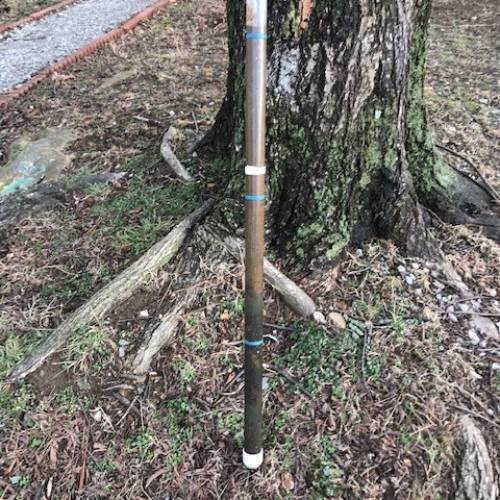
Elevated sludge levels.
Debris collects in the tank and elevated levelsindicate that the tank needs to be pumped.
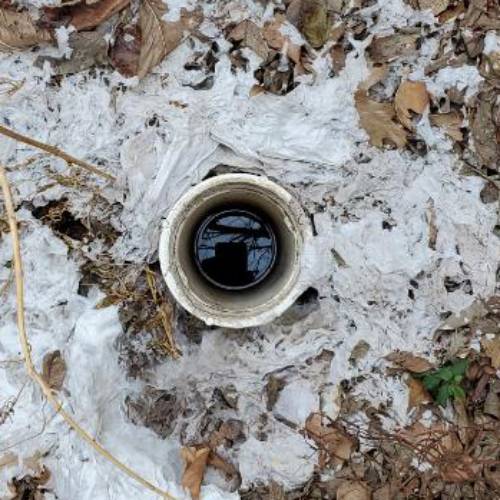
Backups or slow drains.
Water should flow from the tank during use. Backups indicate that the system is not working properly.
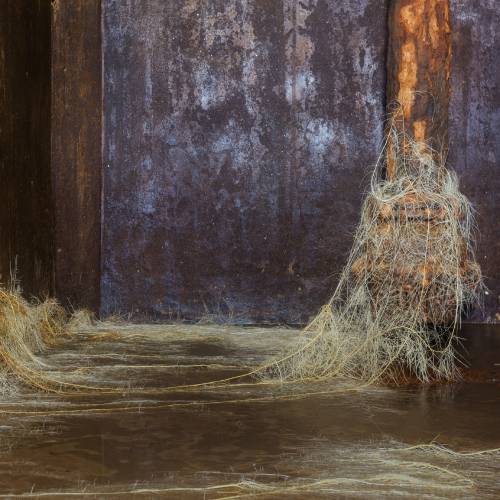
Root intrusion.
Roots grow into the tank preventing proper operation of the system.
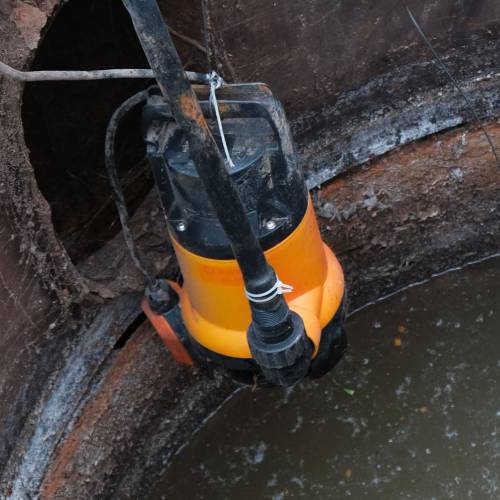
Aerator or pump problems.
Aerobic systems rely on air and water pumps, which require regular service and can fail over time.
If you’re seeing any of these signs, schedule an inspection right away to avoid major repair costs or environmental issues.
Septic System Care: Do’s and Don’ts
Inspections are just one part of a healthy septic routine. Tulsa’s clay soils and weather can put extra pressure on your system, so it’s especially important to follow these care tips:
| Use only septic-safe toilet paper. | Don’t flush wipes, paper towels, or feminine hygiene products. |
| Repair leaking faucets and running toilets. | Don’t pour grease, oil, paint, or medication down the drain. |
| Set sprinkler timers to run between midnight and 5 a.m. | Don’t run roof or yard drains into your septic system. |
| Keep the lagoon or leach field clear of trees and structures. | Don’t drive or build over the tank or drain field. |
| Schedule pumping when sludge reaches 40%. | Don’t ignore warning signs like smells or soggy soil. |
Following these simple rules will extend the life of your system and help you avoid emergencies.
FAQs
Looking for a Septic Inspection Near You in Tulsa?
Whether you’re buying a new home or want to keep your current system running smoothly, Assured Home Inspectors offers the most reliable septic system inspections in Tulsa and surrounding areas, including Broken Arrow, Bixby, Jenks, Owasso, Sand Springs, and more.
We’re local. We’re experienced. And we’re committed to helping you make smart decisions that protect your home and family. Don’t wait until a backup happens to find out what’s going on underground. Book your septic inspection in Tulsa with Assured Home Inspectors.
Call or text 918.853.5113 or visit assuredhomeinspectors.com/septic-system-inspection to schedule your inspection.

